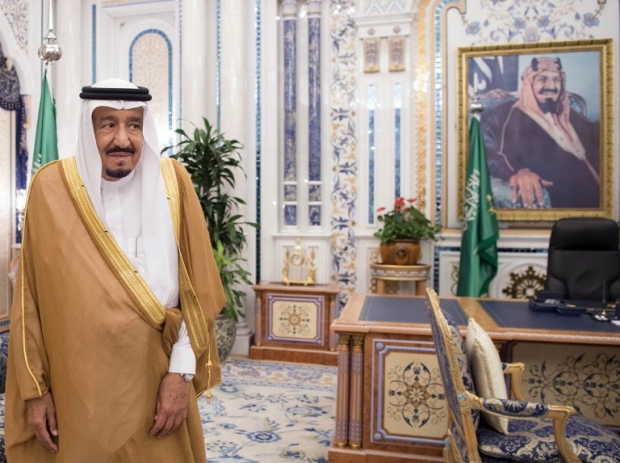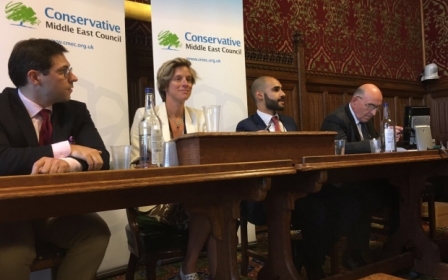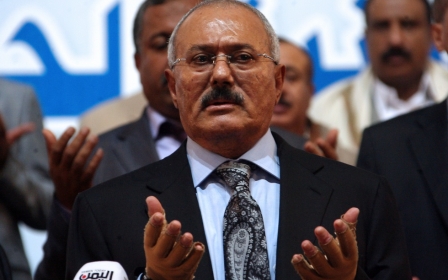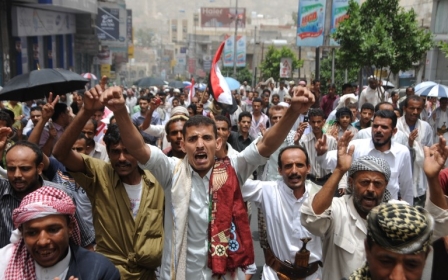Why Saudi Arabia can’t let Yemen go
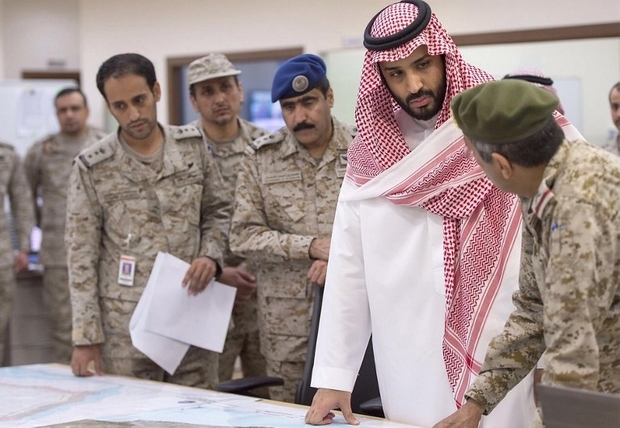
Facing the gravest food security emergency in the world, Yemen continues to top the list of most crisis-stricken nations. Two-thirds of its population - over 18 million people - need humanitarian assistance and more than seven million are suffering from malnutrition.
In Yemen, Stephen O’Brien, the UN under secretary-general for humanitarian affairs said in March that the world is “facing the largest humanitarian crisis since the creation of the United Nations” in 1945.
The Saudi war in Yemen is driven by much more than territorial security reasons or simply the aspiration to 'contain' Iran. It is, to a considerable extent, an emotionally driven campaign
Yemen’s catastrophic situation is primarily a result of the civil war pitting Iran-backed Houthi rebels against the Saudi-led military coalition, which intervened in the country in March 2015 to restore ousted President Abd Rabbuh Mansour Hadi to power.
Yet, over two years on, the conflict has reached a stalemate. In particular, the Saudi-led forces have not yet succeeded in driving Houthis out of the capital Sanaa.
All the while, the political and economic costs of the intervention have soared on the one hand and notable rifts have emerged between the coalition partners, not least Yemeni forces loyal to Hadi and the Emiratis, on the other. The conflict in Yemen has degenerated into a war of attrition, with no definitive conclusion in sight.
The fact is that the Saudi war in Yemen is driven by much more than territorial security reasons or simply the aspiration to “contain” Iran. It is, to a considerable extent, an “affective”, emotionally driven campaign rooted in at least three significant political-psychological factors: 1) revival of nationalism at home, 2) masculinism in foreign policy making, and 3) protection of regional status
Reinvigorating Saudi nationalism
The military action against the Houthis – which subscribe to the Zaidi branch of Shia Islam almost unknown outside of Yemen - has arguably sharpened the sense of nationalism in Saudi Arabia, enhancing the popularity of its leaders, in particular the defence minister, Mohammed bin Salman (MBS), who has marshalled the campaign from the onset.
The Saudi-led campaign to isolate and ostracise Qatar seems to be the latest instance of this passive-aggressive approach to reclaiming status and securing recognition
Interestingly, MBS’s recent promotion from deputy crown prince to crown prince would not be so convenient without his military adventures in Yemen and their impact on the Saudi national perception of him as a patriotic war hero and a determined defender of the realm.
Another pertinent advantage of the intervention was its diversionary effect. It redirected public attention from the economic problems and high-level political schisms that Saudi Arabia has been grappling with since King Salman acceded to the throne in January 2015. It is little wonder that the coalition campaign in Yemen started only around two months later.
Masculinist foreign policy
Saudi foreign policy represents one of the most masculinist and patriarchal in the international community. A masculinist foreign policy may be characterised by tendencies that are conventionally associated with masculinism and male dominance such as hawkishness, aggressiveness, coerciveness, proneness to violence, compromise aversion and so on.
In her groundbreaking book A Most Masculine State, Madawi al-Rasheed, a visiting professor at the London School of Economics, probes the political, religious and historical roots of patriarchy in the Saudi society and demonstrates how it has affected the lives of women and their struggle for recognition, emancipation and equality.
It is equally evident in Saudi Arabia’s foreign policy which usually manifests itself in its aversion to diplomacy and diplomatic solutions to conflicts, hasty recourse to aggressive measures without exhausting all non-military options, and obstinate insistence on policies whose ineffectiveness has been proven. The sudden decision to intervene in Yemen encapsulates all these tendencies quite evidently.
Other examples of Riyadh’s rigid patriarchal foreign policy orientation are its denunciation of political negotiations with Iran over bilateral tensions and the abrupt diplomatic and transport boycott of Qatar, a Sunni sheikhdom and former Saudi ally in the Middle East.
Along parallel lines, Saudi Arabia prompted a diplomatic row with Sweden in early 2015 over a speech the Swedish feminist foreign minister Margot Wallstrom’s had been invited to give at an Arab League summit in Cairo on 9 March.
I argued back then that the Saudi reaction would probably have been different, had the ultimately undelivered speech belonged to a male politician hailing from another country such as the United States. While obviously unrelated to the Yemen war, this episode is indicative of broad tendencies in the official Saudi worldview that make it extraordinarily prone to aggressive and coercive policies.
Claims to regional leadership
The timing of Saudi’s military campaign, launched right in the thick of nuclear negotiations between Iran and world powers, is critical to understand the kingdom’s motives.
The Yemen intervention was meant, among other things, to send the Obama administration a signal that Saudi Arabia would not accommodate US overtures to Iran
Betraying Saudi perceptions of its regional decline in the face of a resurgent rival, the intervention was meant, among other things, to send the Obama administration a signal that Saudi Arabia would not accommodate US overtures to Iran, and more significantly, the shifting balance of power in the Middle East.
In other words, the Yemen intervention was part of Saudi attempts, since the beginning of King Salman’s reign, to preserve their regional status and claims to leadership in the Muslim world, a position that has been consistently challenged over the past few years by the failure of hardline Saudi policies.
For one, Riyadh’s export and dissemination of Wahhabism as a means to maximise its influence abroad has helped cultivate such terrorist groups as al-Qaeda and Islamic State, which have not spared Saudi interests in their terror campaign. The perniciousness of the Wahhabi ideology has also served to tarnish the Saudi image in the region and more widely in the international community.
It seems reasonable to argue that the Saudi Arabia’s continuation of the military campaign in Yemen - against all the odds and despite its degeneration into an attritional “frozen” conflict - is less driven by “hard” national security concerns as it is by “soft” psychological factors and emotional gains, such as the boost of nationalism, surge in leadership popularity, diversion of public opinion from domestic problems, and projection of a powerful image abroad.
The implications of such an argument are grim for the future of the Yemeni civil war. It suggests that the Saudi intervention will persist unabated until and unless those inherently elusive and long-term objectives are fulfilled.
- Maysam Behravesh is a PhD Candidate in the Department of Political Science and a Research Fellow in the Center for Middle Eastern Studies (CMES), Lund University. He was a senior editor of the Wiley-published journal Asian Politics & Policy and editorial assistant of the Sage-published quarterly Cooperation and Conflict. Maysam is also a regular contributor to Persian-language media outlets including BBC Persian.
The views expressed in this article belong to the author and do not necessarily reflect the editorial policy of Middle East Eye.
Photo: Saudi Defence Minister and then-Deputy Crown Prince Mohammed bin Salman meets with Saudi air forces officers in March 2015 to discuss plans and developments of the military operations in Yemen (AFP)
New MEE newsletter: Jerusalem Dispatch
Sign up to get the latest insights and analysis on Israel-Palestine, alongside Turkey Unpacked and other MEE newsletters
Middle East Eye delivers independent and unrivalled coverage and analysis of the Middle East, North Africa and beyond. To learn more about republishing this content and the associated fees, please fill out this form. More about MEE can be found here.





